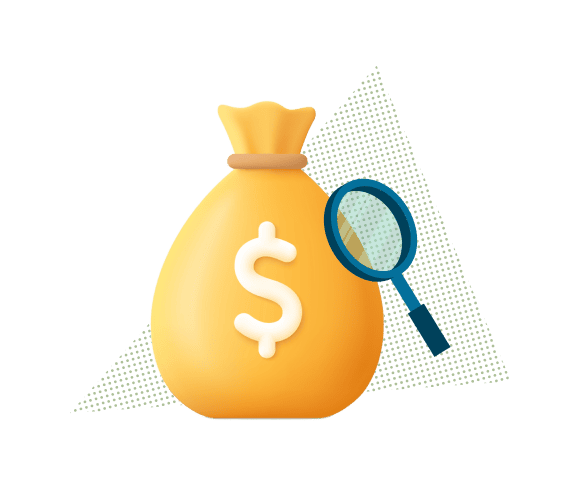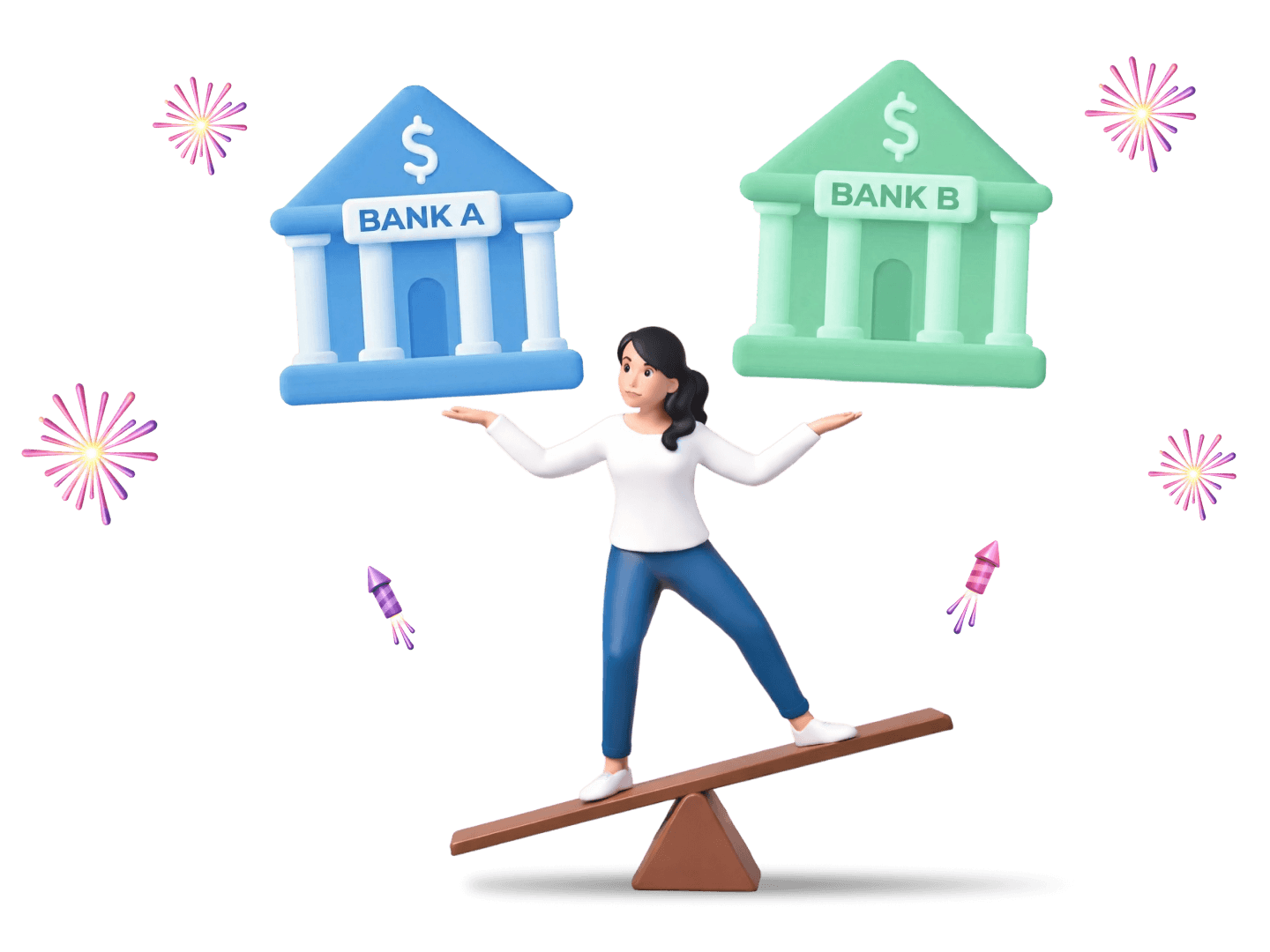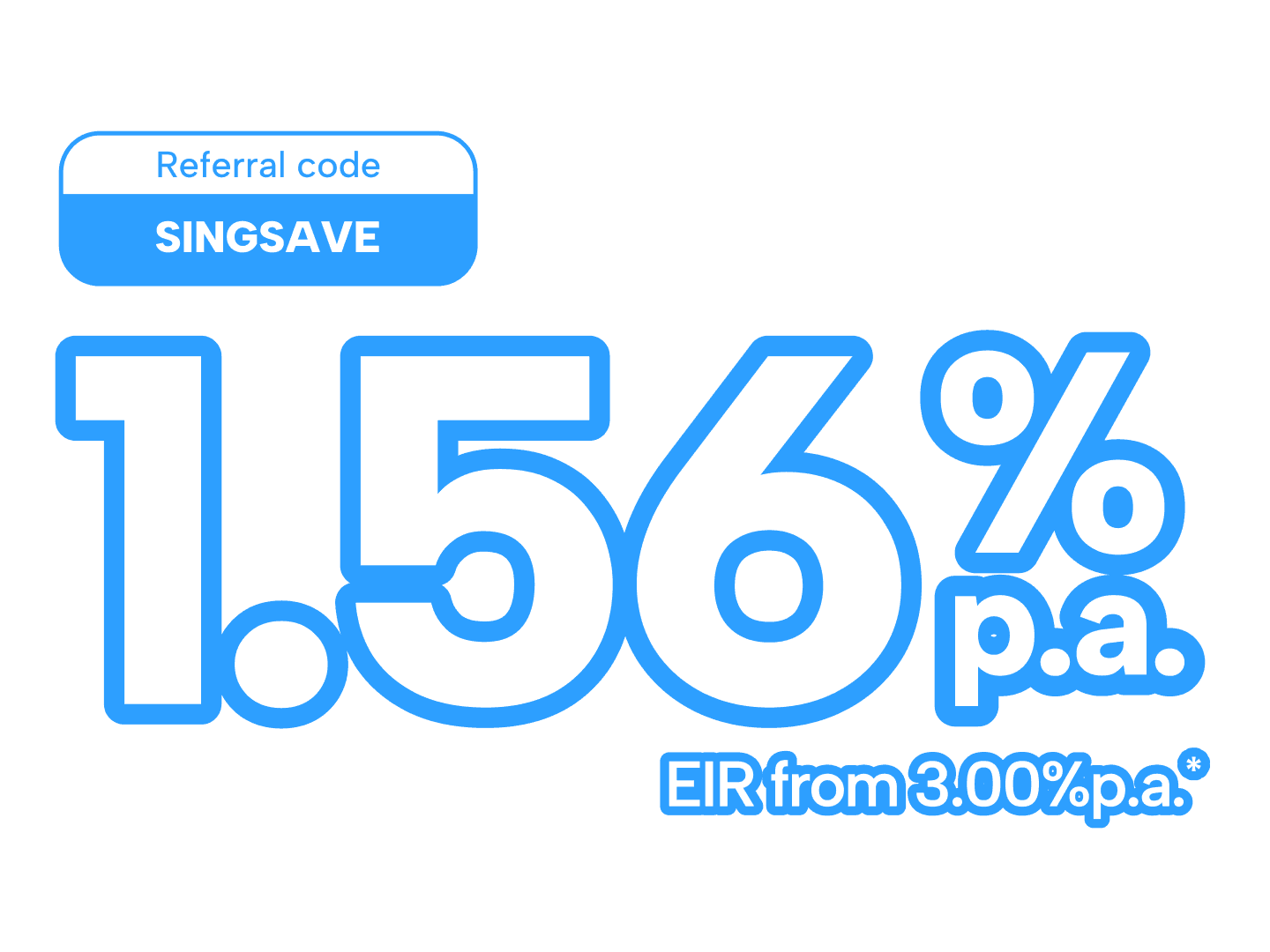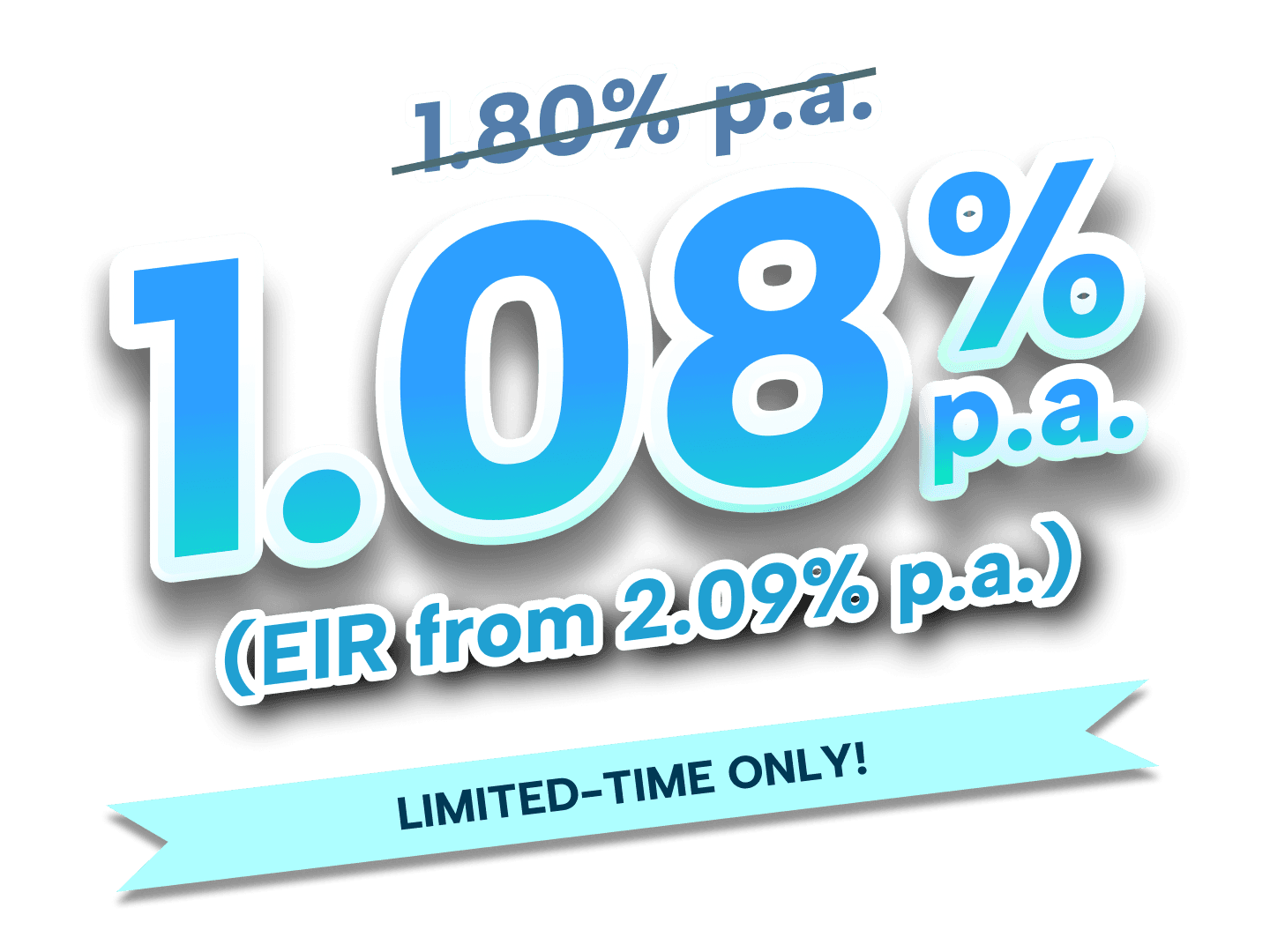How Are Mortgage Rates Determined in Singapore?
Updated: 17 Dec 2025
Mortgage rates in Singapore are influenced by your credit score, loan-to-value ratio, economic trends, and benchmark rates like SORA.
Thinking of buying a home in Singapore? Then you’ve probably realised that mortgage interest rates can make a huge difference to how affordable your loan is over time. Even a 0.5% difference in rates can mean thousands of dollars saved (or spent) across a 25-year mortgage. But how exactly are mortgage rates set, and why do they vary so much?
In this guide, we’ll break down the key factors that influence mortgage rates in Singapore—both the ones you can control and the bigger economic forces that you can’t. Plus, we’ll share tips on how to get a better deal and make smarter decisions for your financial future.
Compare the best home loans in Singapore
Looking for a mortgage that fits your needs? Explore the best home loan packages in Singapore and start saving on interest today.
SingSaver Personal Loans Cashback Offer
Enjoy interest rates as low as 1.08% p.a. (EIR from 2.09% p.a.) and up to S$4,900 in cashback when you apply for a personal loan via SingSaver. Valid till 1 March 2026. T&Cs apply.
Mortgage rate factors that you can control
While you can’t control broader market conditions or the direction of interest rates, you can take meaningful steps to improve how lenders perceive you.
From building a strong credit history to managing your debt responsibly and saving for a larger down payment, these actions show banks that you're a reliable borrower. And the more confident a lender feels about your financial stability, the more likely they are to offer you a lower mortgage rate, which can make a huge difference in your long-term loan costs.
Credit score
In Singapore, your credit score plays a big role in how banks view your reliability as a borrower. Managed by the Credit Bureau Singapore (CBS), your credit report summarises your past and current debts, repayment history, and how much credit you’re using.
If your credit grade is ‘AA’ (the best), you’re more likely to enjoy attractive mortgage rates. On the flip side, missed payments, frequent applications for new credit cards, or maxing out your credit lines could lower your score.
You can use tools like CBS’s My Credit Monitor to keep tabs on your credit health and take steps to improve it before applying for a loan.
» MORE: Credit score ranges in Singapore
Loan-to-value (LTV) ratio
The loan-to-value (LTV) ratio shows how much of your property’s price you’re borrowing. The lower your LTV (meaning the higher your down payment), the less risk the bank takes on, which can translate into more competitive rates.
Under MAS rules:
-
First housing loan: Up to 75% LTV
-
Second housing loan: Up to 45%
-
Third or more: Up to 35%
This means that if you’ve saved up a significant amount for your down payment, whether it's your first home or a second investment property, you’ll not only meet regulatory requirements more easily, but also position yourself as a more attractive borrower in the eyes of the bank.
» MORE: Understanding your LTV ratio
Top home loan rates in Singapore - SORA
|
Loan tenor |
First Year interest |
First year monthly instalment |
Three year average interest |
Lock-in period |
|
|
Mortgage Master 3-Month SORA |
30 years |
3.15% |
5.16K |
3.20% |
2 Years |
|
DBS 3-Month SORA |
30 years |
3.05% |
5.09K |
3.05% |
2 Years |
|
OCBC 3-Month SORA |
30 years |
3.05% |
5.09K |
3.13% |
2 Years |
Top home loan rates in Singapore - Fixed
|
Loan tenor |
First Year interest |
First year monthly instalment |
Three year average interest |
Lock-in period |
|
|
OCBC 3 Year Fixed |
30 years |
2.45% |
4.71K |
2.45% |
3 Years |
|
DBS 3 Year Fixed |
30 years |
2.55% |
4.77K |
2.55% |
3 Years |
|
HL FInance 3 Year Fixed |
30 years |
2.60% |
4.80K |
2.60% |
3 Years |
Other factors
Several other borrower-specific elements can influence the interest rate you’re offered. These include your loan tenure, property type, Total Debt Servicing Ratio (TDSR), Mortgage Servicing Ratio (MSR), and your income and job stability.
» MORE: How to get mortgage preapproval
⚡SingSaver x Trust Personal Loan Flash Deal⚡
Enjoy low interest rates from 1.56% p.a. (EIR from 3.00% p.a.) plus up to S$1,750 in cashback and rewards when you sign up for Trust Bank Personal Loan via SingSaver. Plus, receive a S$10 FairPrice E-Voucher from Trust when you sign up with the referral code SINGSAVE. Valid till 1 March 2026. T&Cs apply.
Mortgage rate factors out of your control
Even if your credit score is perfect, there are larger economic forces that affect mortgage rates, and they’re often out of anyone’s hands.
Things like global interest rate trends, inflation, monetary policy decisions by central banks, and even geopolitical events can cause fluctuations in borrowing costs. In Singapore, many home loans are pegged to SORA (Singapore Overnight Rate Average), which reflects broader market conditions and is influenced by global financial movements, particularly those originating from major economies like the United States.
So while your strong financial standing helps, it’s important to understand that external conditions can shift rates in ways that affect everyone.
The overall economy
Mortgage rates tend to move with the health of the economy. In boom times, rates may rise as demand grows. During downturns, rates often drop to encourage spending and borrowing.
Lenders price in economic risks too. If they foresee potential instability, they may increase rates slightly to protect themselves.
Inflation
When inflation rises, so does the general cost of living. To keep it under control, central banks (like the US Fed) may hike interest rates, which trickles down to Singapore’s borrowing costs, including mortgage rates.
For borrowers on floating rate packages (e.g., those pegged to SORA), inflation can quickly lead to higher monthly payments.
The job market
Singapore’s employment trends affect how banks assess risk. When unemployment is low and job stability is high, borrowers are seen as less risky.
In contrast, during recessions or hiring freezes, banks may raise rates or become more cautious in approving home loans.
Other economic indicators
Banks and financial institutions also monitor GDP growth, consumer confidence, MAS policy updates, and even global events like wars, trade conflicts, or US interest rate changes—these can all affect how banks in Singapore price their loans.
Federal Reserve
Singapore doesn’t follow the US Federal Reserve directly, but we’re certainly influenced by it. When the Fed raises rates, global interest rates (including Singapore’s) often follow.
SORA, which many home loans are now based on, reflects global borrowing trends. A rate hike in the US can eventually lead to more expensive loans here too, although there may be a time lag.
» MORE: How the Fed affects borrowers
Are mortgage rates the same across different lenders?
Definitely not. Banks and financial institutions in Singapore each have their own pricing strategy. Some offer better fixed-rate packages; others are more aggressive with SORA-based loans. Funding costs, internal risk appetite, and marketing goals all influence the rates they offer.
On top of that, non-bank digital lenders and mortgage platforms may offer refinancing deals or personalised quotes that traditional banks don’t match. So it pays to compare.
Shop with confidence
While you can’t control everything that affects mortgage rates, knowing how they’re determined helps you take smarter steps as a borrower. With a solid credit score, a healthy down payment, and some savvy comparison shopping, you can land a better rate—and save big on your home journey.
And don’t just settle for the first rate you see. Platforms like DollarBack Mortgage, PropertyGuru Finance, or MoneySmart let you compare home loan packages across banks easily. Some even offer calculators to help you work out your monthly payments.
⚡SingSaver x SCB CashOne Personal Loan Flash Deal⚡
Enjoy SCB's Lunar New Year Interest Rate starting from 1.08% p.a. (EIR from 2.09%), the lowest in the market! Plus, get up to S$4,900 in Cashback when you apply for Standard Chartered CashOne Personal Loan via SingSaver. Valid till 1 March 2026. T&Cs apply.
Thinking about refinancing?
Find out when it’s the right time to refinance your home loan and how to make the most of changing mortgage rates.



